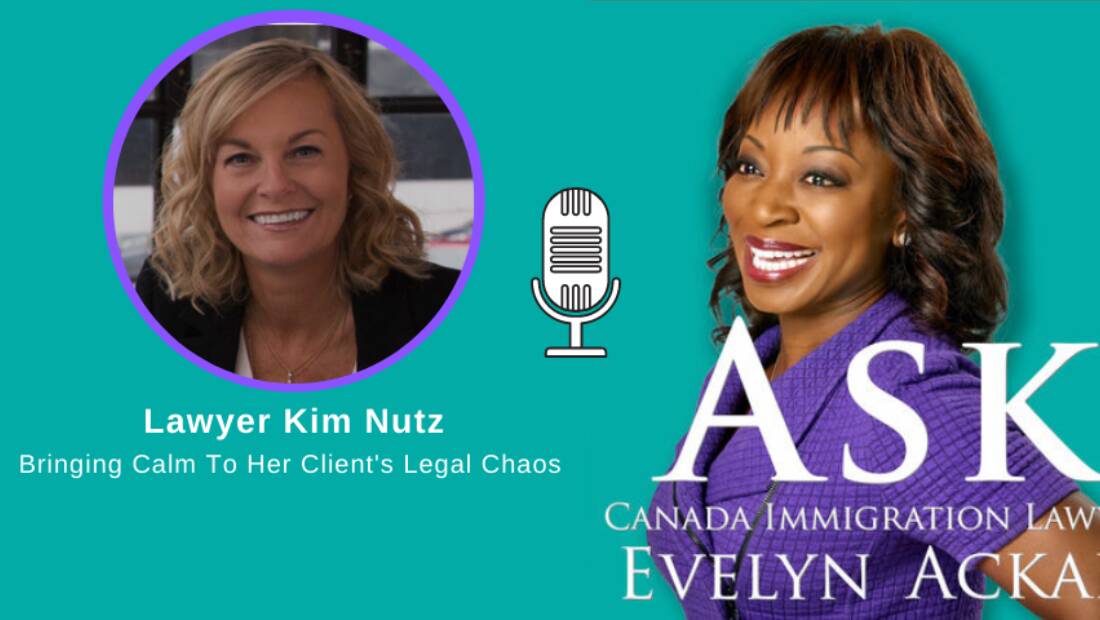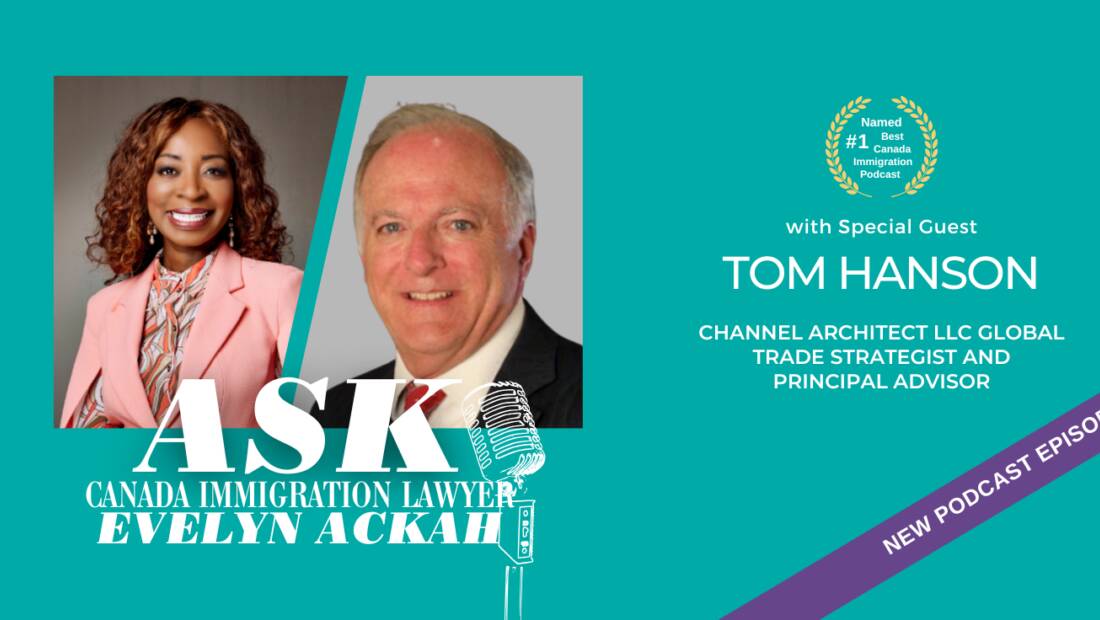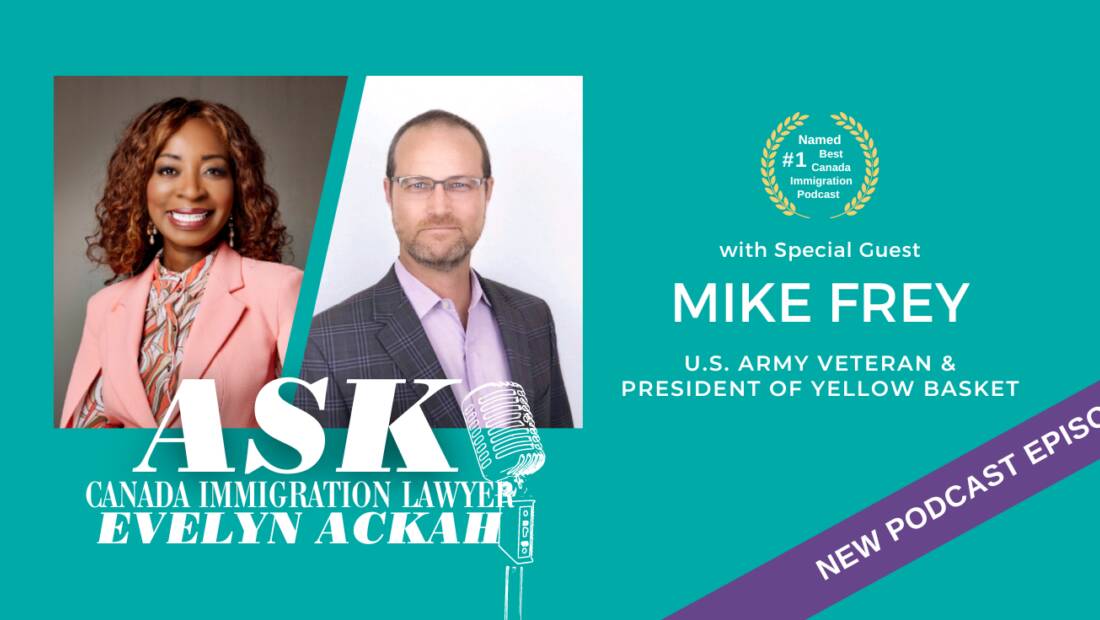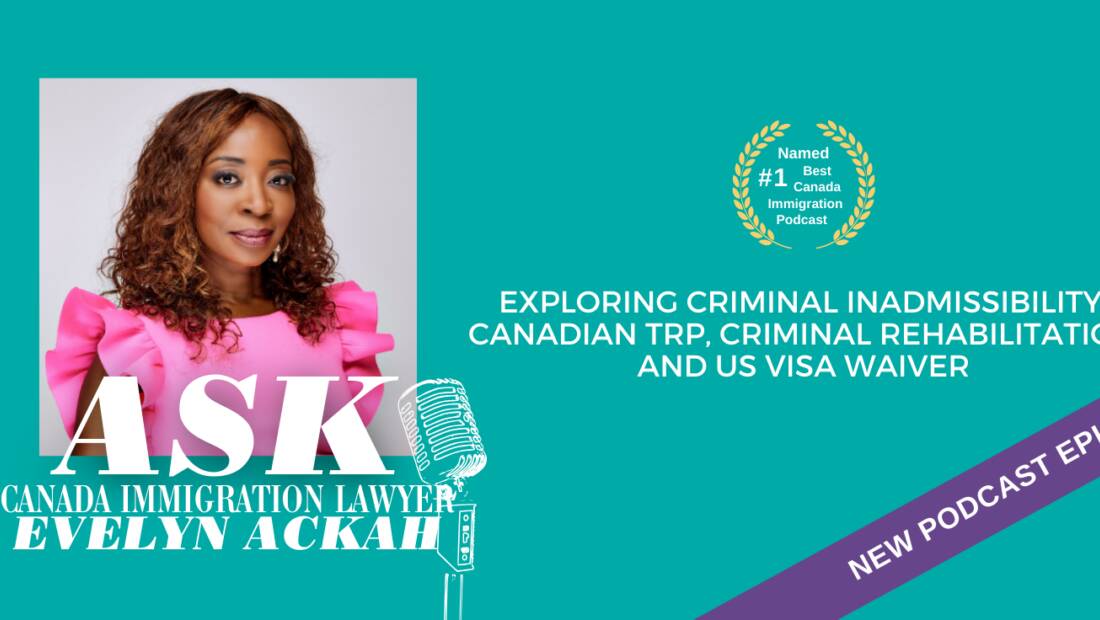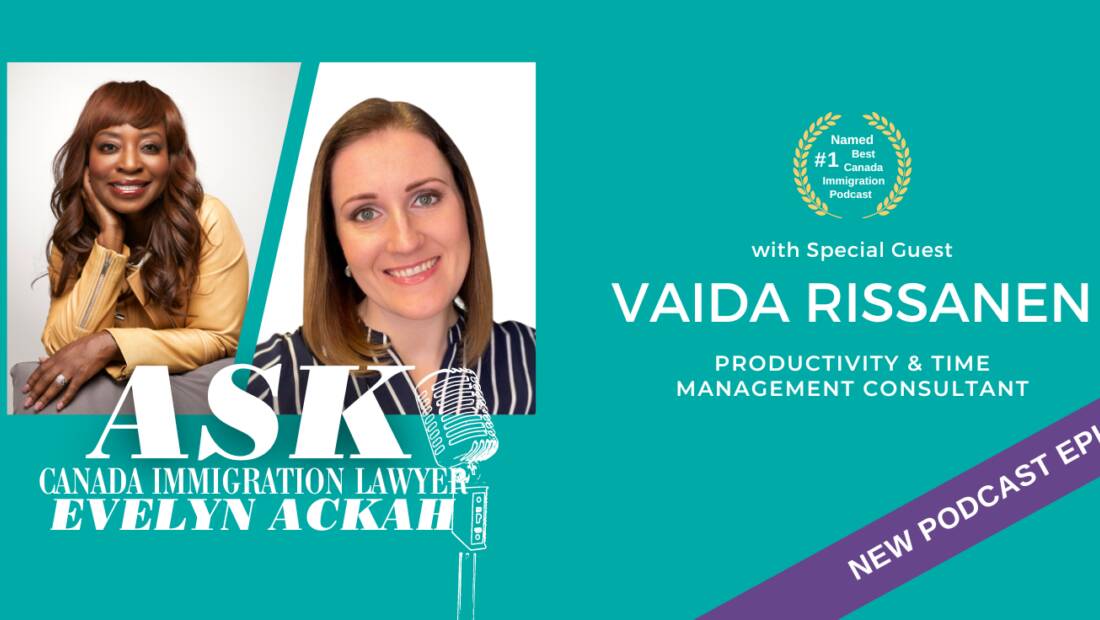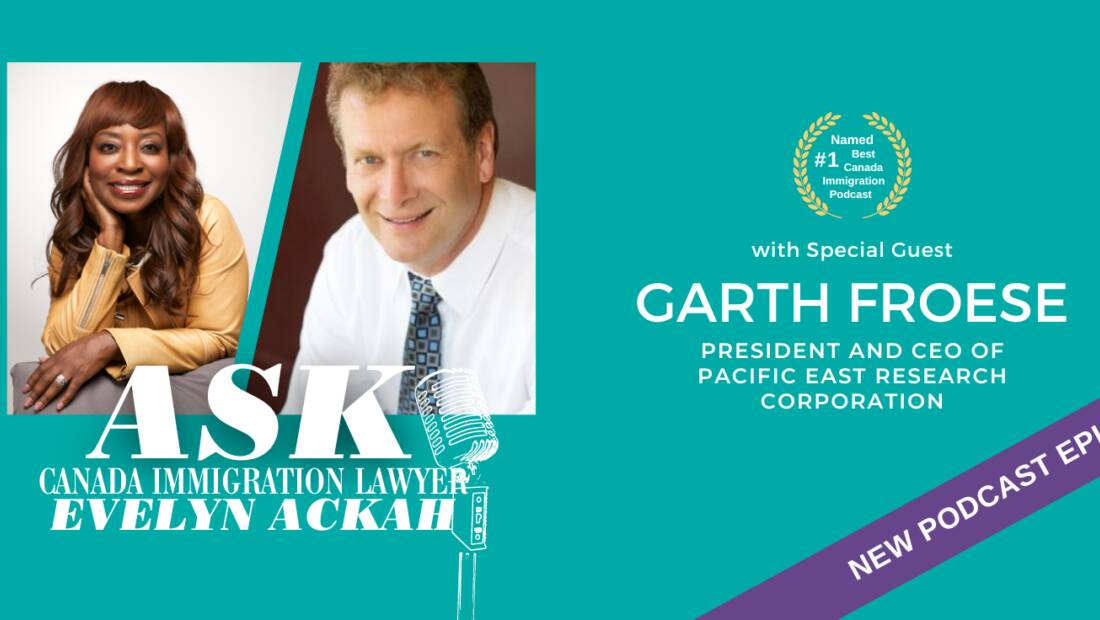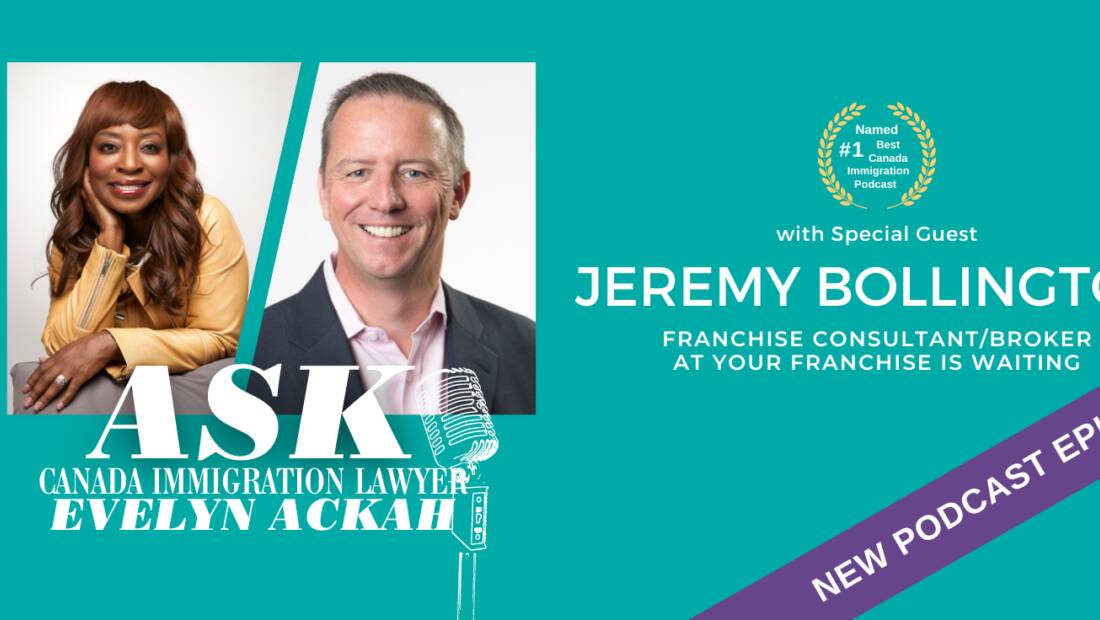Or listen on your favourite podcast app
Kim Nutz is a labour and employment lawyer who has managed to design a career that has the best of both worlds. She is Senior Legal Counsel at West Legal in Calgary and has opened her own firm, Sunstone Legal. As a lawyer and legal entrepreneur, her mission is to bring calm to her client's legal chaos.
Kim and Evelyn discuss:
- How Kim transitioned from a career in criminal law to employment law.
- The work/life balance goals that led Kim to consult for a small law firm.
- Introducing flat flee service fees to employment law in Calgary.
- Why she opened her own firm... and named it Sunstone: the meaning of the sunstone crystal.
- Have the changes Kim's put in place made her a happier lawyer?
- Who are her ideal clients?
- The COVID shutdown happened when her new firm was 5 weeks old: how that impacted Kim's business.
- The crossover between immigration law and employment law.
- How COVID impacted The Great Resignation.
- What's Kim's secret sauce: what makes you a happy lawyer, and makes life enjoyable as a lawyer?
- Why Kim is optimistic for young women in law and how the practice of law is changing.
About Evelyn Ackah
Evelyn Ackah is the Founder and Managing Lawyer at Ackah Business Immigration Law. We work with individuals and business owners from all over the world who want to cross borders seamlessly. For more information on immigration to Canada or the United States, Ask Evelyn Ackah at Ackah Business Immigration today at (403) 452‑9515 or email Evelyn directly at contact@ackahlaw.com.

Transcript
Evelyn:
Good day everyone. This is Evelyn Ackah from Ask Canadian Immigration Lawyer Evelyn Ackah Podcast. And I have the joy of welcoming my friend and colleague today, Kim Nutz from Sunstone Legal. Welcome Kim.
Kim:
Hi, Evelyn, how are you?
Evelyn:
I'm great. Thank you so much for doing this.
Kim:
Yeah, no problem.
Evelyn:
I really appreciate it. So full disclosure, I work with Kim as well, as an employer. And she's my employment council, but she's also a colleague that I refer other people to, and I thought it would be wonderful to learn more about your background, Kim. And even just to start with just your history in law and how long have you been doing it and what brought you, like me, to having our own practices?
Kim:
Yeah, a lot longer than I care to admit. Yeah, I know. Right? I got called to the bar in 2000, so 21 years ago. I actually initially articled at a small criminal defence firm. I did criminal defence work for about a full year. I loved it.
Evelyn:
Wow.
Kim:
Yeah. There's some days that I wish I had stayed in it. But to be honest, criminal law doesn't pay the bills and the student loans and the mortgages that everyone has, coming out of law school. So I started looking for a litigation position because I did like litigation at the time. So I ended up going over to Gowlings. It was Coach Hunter at the time, then turned into Gowlings. I was there for roughly seven years and I was mentored by one of the most prestigious, smart employment lawyers in the country, David Corey.
Evelyn:
Oh, I know David well. Yes.
Kim:
Yeah. And he was so excited about employment law every day. And any chance he had to talk about it, he just went on and on and on. So I really took in that energy and started to just do every sort, whether it was employment up to labour, human rights, anything to do with employment labour. And I loved it, but what I didn't love was the big firm stuff that went with that. So in 2005, I had my first child, my son Lucas, and my life changed as most mothers do when they're in the law. So I found that I couldn't sustain the hours they wanted of me. And I wanted to have a bit more of a work-life balance, which I think a lot of mothers and lawyers do at the time. And they realize that other things are more important now. So you get your priorities straight, I guess, in some ways.
Evelyn:
Yeah.
Kim:
So I started looking for other opportunities. And I ended up going over to this city of Calgary at that point, because they were looking for employment, labour council, I guess, specifically to be handling the Calgary Fire Department stuff.
Evelyn:
Wow.
Kim:
So I ended up working at headquarters at the Calgary Fire Department for roughly three years, just advising the fire chief and all the deputy chiefs and whatnot on their labour matters. And there was a lot of labour matters with the fire department.
Evelyn:
I can imagine.
Kim:
The IAFF is a very busy union, let's put it that way. So we had a lot of grievances on the go. And I did love labour law and I certainly loved where I worked. The people were amazing. But again, the, the bureaucracy of a machine such as the Municipality of the City of Calgary was overwhelming. And coming from private practice, it was very difficult for me to who have to not be able just to advise my client directly. I needed to go A-OKs and it just made me crazy.
Evelyn:
I can imagine.
Kim:
I can't do this. I got to go. So I did go to Suncor for a very short period of time, to act as their in-house counsel up at Fort McMurray for roughly two months. But again, that was not for me because I was travelling a lot. And that wasn't the work-life balance that I initially had wanted. So being there, I was leaving at four o'clock in the morning on the sun jet up to Fort Mac and coming home at 10 o'clock at night. I never saw my son.
Evelyn:
Wow.
Kim:
So, it didn't make sense. So I had reached out to a former classmate of mine, Jeff Kahane. I was actually his buddy in law school. He was a year behind me and he had his own firm and he was only roughly five or six lawyers at the time. And he just said, "Well, why don't you come over here and try it over here, just consult, like do what you want and figure it out. Make it whatever you want." Because he didn't have any other lawyers, other than real estate, maybe a wills and estates lawyer.
Evelyn:
That's right at the time. Yeah.
Kim:
Yeah. So I kind of just sort of thought, "Okay." And I actually went back to David Corey and I said, "David, what would this look like? How do I do this?" And he gave me such great advice. And he just said, "Listen, you have what you need as far as the smarts go. You've been doing this for enough years now that you can provide your clients with great advice. You just have to figure out a way to do that in a way that makes you happy." So I really did. I sort of created a very ... it was very employee heavy at the time. Certainly we were going through the recession. There were a lot of terminations. It was a severance package review haven I was doing. I was getting like 30, 40 calls a day just to do severance packages. It was crazy. But I really took that on and I got into a really good groove about being able to service the clients in a quick, timely fashion for a flat fee, which was the first time anybody in the city had ever done a flat fee service for employment law.
Kim:
Now other people will try and take credit for that. But I know it was me. I did that.
Evelyn:
That's like immigration, of course, it's flat fee. But you had to create that model, right?
Kim:
I did. I did. And it worked out great. It worked out really great. And I think it really helps clients, I'm sure you feel this way too, when they know what to accept.
Evelyn:
Exactly.
Kim:
They're not going to get this massive bill and we're not point oneing them to death on a file.
Evelyn:
Exactly.
Kim:
So because we know what we're doing, we're able to provide timely advice. And we know how long it's going to take us already in our mind. And the clients are getting a really good deal. Because frankly, my clients are out of work. They don't have a big paycheck coming anymore.
Evelyn:
Exactly. Yeah.
Kim:
They can't [pay a $3,000 retainer. So I think the clients appreciated it as well at the time.
Evelyn:
So you were there as independent lawyers, that seems like what they do there. And when did you decide to kind of start Sunstone Legal?
Kim:
I was at Kahane for roughly 11 years. I was the only consultant lawyer there. Everybody else was an employee. So I was kind of on my own. I was still acting as my own professional court, but I didn't ... So I kind of did my own thing. I set my own hours to take as much vacation as I wanted, so I kind of already had that whole thing in motion already. So I decided that I really, really wanted to do something that was a bit more ... I thought, I'm 50, I'm 51 years old, I want to make more of a mark on my own. And so I decided that I'm going to leave Kahane, begrudgingly. It was a great place to work for a very long period of time, but I just wanted to do something a bit more of my own.
Kim:
And that's how Sunstone kind of came to be.
Evelyn:
That's so great.
Kim:
And I knew I couldn't do that with Jeff, because Jeff had a very busy practice and he had his own machine going and stuff like that. And so I did want to be able to do that. And where I landed at West Legal, Dave west is actually a former colleague of mine from Kahane, as well.
Evelyn:
Oh great.
Kim:
He had started his own shop about three, four years prior to this. And he just allowed me to sort of settle in here and we work in association with each other. So it's been really great. So great synergy, because he's got the types of lawyers I need to service my clients on, whether it's wills and estates or litigation or real estate, commercial real estate. And then I'm able to at least service his clients from an employment labour perspective. So it's worked out great.
Evelyn:
That is fabulous. Wow.
Kim:
Yeah.
Evelyn:
And so tell me when you chose the name, because that was one of the first questions I had was, where did that come from? Because you could have made it Kim Nutz and Associates or whatever. Right? It could have been anything.
Kim:
I had those discussions in my head, right? You're taking your last name. And when you look at my last name, I'm like, "Well, this isn't going to work." So to be perfectly honest, I've always been really drawn to crystals and just things that provide good positive vibes and stuff like that. I've always done that. So I literally went and got a coffee one day, Evelyn. I went to Chapters. I sat in their crystals aisle with all the books. Pardon me. And I just started reading through. And I literally opened up one book and the page just opened up to Sunstone and I read it. And the Sunstone actually is what they deem to be ... and I pulled up all my stuff. These were all the notes that I had taken and printed off.
Evelyn:
Oh my God.
Kim:
I took pictures of the books. I never even bought the books. I took pictures of the books.
Evelyn:
What not to do listeners.
Kim:
Right. Yeah. And it's actually a stone of career in leadership. That's what it was actually entailed. So it says, "The workplace crystal can bring about opportunities for personal promotion, help you establish boundaries against situations that could potentially drain your finances." And so the Sunstone, it says, "By working with the Sunstone, you may be more able to enter into a new beginning or new chapter of your life. The Sunstone is all about freedom, self-empowerment and independence."
Kim:
So I thought about those things and I thought, "You know, this is exactly what I do for my clients." I want to be able to usher them into a new sort of chapter of their life. They're typically coming to me when things are not going well, obviously. They're either been terminated with or without cause, or they're working in a toxic work environment and they are really struggling getting up and going to work every day. They're hating their jobs. They're hating their life. And as you know, jobs transcend into the rest of our lives. So they become just miserable human beings. So I really wanted to be able to help my clients, and that's how I came up with bringing calm to chaos. Right? They've they've got this chaos, but the Sunstone and hopefully myself and my skillset are able to bring them sort of a calming, we can figure it out, you got this, even if we get through this, we can get you to the other side.
Evelyn:
I love it. I love it. Love it.
Kim:
Yeah. That's sort of where I came to.
Evelyn:
I love what it represents. And I mean, I think, as you know, my younger sister is an employment lawyer in Vancouver, and it's just so incredible the impact you make at the front end, at the hiring when it's all exciting and you're giving them that calmness, "Like let's not get overly excited. Let's look at this in terms of what happens at the end, if it doesn't and go well." And so you really are a trusted advisor for all aspects of employment, from the beginning to the end, right?
Kim:
Yeah, yeah. Absolutely. Hiring and firing.
Evelyn:
Do you litigate, as well?
Kim:
I used to. I used to do a lot of that. To be perfectly frank, the courtroom's out of me now. I'm done with that. So I've been doing mostly solicitors work, but I do have two great junior litigators, who know their stuff now. I've trained them since they were babies. So if anything gets contentious, and not much does. If I'm being honest, I would say maybe one out of 50 files goes to litigation, but they're ready to do that. So yeah.
Evelyn:
That's great. That's so fabulous. So I think like you and me, there's all about when you have children, it kind of changes your perspective on life. Right? And I think as women ... I mean, I think more men maybe are making these decisions now, especially with COVID and in the midst of it all. But I really think it's interesting that women are leaving law or leaving big law or corporate or whatever it was, to find ways that make it work for them. So have you felt like the changes you've made have made you a happier lawyer?
Kim:
Oh my God. Like a hundred percent. I liked the law when I was at big firms, but I didn't like the lifestyle. And so it made the law miserable, because it was still pulling you away from the things that you wanted to be at. Whether it's the kids' soccer game or going to a hockey game or picking them up from school. So now I have a very short work day, like I take my kids to school in the morning. The 16 year old's now driving, but in any event.
Evelyn:
Oh my God.
Kim:
Yeah. The little one, I take to school and I pick her up every day. So I'm done my day by 2:30, 3:00 every day. And I'm at the office by 9:00.
Evelyn:
That's great.
Kim:
So it's a five-hour event, work hard, go have your life, right?
Evelyn:
Yeah. Yeah. That's good. Those are of decisions you're making. So, I mean, in terms of working with West Legal, do you find that you're not having to have all the bureaucracy, because that's a part of it in my life, in my world, as the owner doing everything. You have your team, but it's the infrastructure needed to be built by me. How is it helping you not to have to worry about those things, you just plug and play. Is that really what it looks like for you?
Kim:
There's parts of it that are certainly plug and play. I do help Dave with all HR matters. So I'm in the mix of hiring, firing, papering, employment agreements, all that kind of stuff. Obviously I don't do the admin heavy side as far as payroll or any of that kind of stuff goes. But he has people that do that for him, as well. So I'm still trying to ... like, we have a synergy as far as marketing goes between the two firms. So I do blogging for myself, but obviously I'll post on both websites. He does the same and so -
Evelyn:
That's great.
Kim:
... there is a bit of cross over there, which is kind of helpful. So if I see something coming through the juniors here, I'll be able to post it to my website and stuff like that. So it works well.
Evelyn:
Perfect. So you act for employers and employees. Who are your ideal clients? So that I can have a real sense of when the referral opportunities come, who would be your ideal? I mean, you've helped me with the not for profit. You've helped with corporate, you've helped with individuals. Is it everything, pretty much?
Kim:
Yeah, I'm doing everything. I still get a lot of referrals from my folks and friends from downtown, so from big firm. So in that regard, I'll get often the stuff that's like the executives, who they can't act for, obviously, because they're on for the company. So I'll get [inaudible 00:14:35] that kind of work.
Evelyn:
Yes. Perfect.
Kim:
I'm getting a lot of small business, small employers, just by virtue of who I am and where we work. We work in sort of Southwest Calgary, we're not downtown, so you're going to get a lot of smaller businesses, which is great. And that's been the bulk of my practice probably for the last, I would say probably a year has been small business.
Evelyn:
Great. Yeah?
Kim:
Yeah. Just because the terminations and the severances have all sort of slowed down. Right?
Evelyn:
Mm-hmm (affirmative).
Kim:
Everyone's sort of in a holding pattern and now everyone's starting to hire again.
Evelyn:
Exactly.
Kim:
So now I'm back in the upswing of drafting employment agreements and revising policy manuals and writing COVID vaccine manuals.
Evelyn:
Exactly, I was going to ask, like return to work stuff, you know?
Kim:
Oh yeah.
Evelyn:
Oh my gosh.
Kim:
Yeah.
Evelyn:
It's going to be very interesting.
Kim:
You know what, there's not an ideal client for me. I will literally, if there's no conflict, I can act for any of them. And I actually enjoy it, because it gives me a bit of everything. Yeah.
Evelyn:
Yeah. Real variety. Oh that's fabulous. So tell me how COVID affected you, if at all. I mean, you were working from home like most people were, I'm assuming, for a while?
Kim:
Yeah. When it got shot down in March, I was literally at my five-week mark of starting my new firm. And, "Ah." I was like, "What have I done?"
Evelyn:
Oh my God.
Kim:
"What have I done?" And you know, everything slowed down. Right? And everyone's sort of like in this holding pattern. And then all I did was answer questions about temporary layoffs, for what seemed like was six months. It was just, "Can they do this?" I'm like, "Yep. And there's nothing we can do about it."
Evelyn:
It was long, so long.
Kim:
Yeah. So we have a place out in BC, so I took the kids, because they were off school. And we went out to BC and they did their schooling from out there.
Evelyn:
Perfect.
Kim:
I worked from out there and we really just reconnected for a lovely six-month period until September rolled around in 2020 and I came back to the office and got moving again.
Evelyn:
That is so great.
Kim:
But yeah, it was slow. But I swear by September, everything was picking back up again and things just sort of went along tickety-boo again.
Evelyn:
Wow. So are you seeing clients in person now? Yeah, same with us.
Kim:
I don't really need to.
Evelyn:
Yeah.
Kim:
Which is, you know. And I'm sort of, should I be at this point? A lot of people are like, "Well, you should probably get back." I'm like, "But why?" Because we've all really gotten accustomed to this, right? And I kind of like being able to sort of not worry about ... I find that booking the meetings now actually takes more time than it is to just sit on a Zoom or a phone call and do the work.
Evelyn:
Exactly. Do the work.
Kim:
And provide them with the information they need. Right?
Evelyn:
Right. No. So interesting. Well, I mean, one of the things that I'll share with our listeners, is we've moved to a four-day workweek, as a trial, through the end of the year. And you helped me with all that and signed all the contracts. And it's so interesting. So today is Tuesday here in Calgary and so today everyone's back and we're just like frantic because it's the second week.
Kim:
Sure.
Evelyn:
And it's like, you're just trying to figure out how to get back to it. Have you seen some of your clients changing their ways of working, besides working from home? How have they had to adjust to, one, ensure everyone is doing the work they should be doing, even if they're not in your space anymore?
Kim:
Yeah. It's tough. And you're going to get a variety of different opinions from different employers as to how they want to manage that. Some are very flexible with it, as far as not micromanaging their people, just realizing that there's a bulk of work. It needs to get done. And if it gets done and I hear no complaints from my clients, everything's great. And I'm not going to worry whether you logged off at 4:25 versus 4:30.
Evelyn:
For sure.
Kim:
Some employers are a bit more crazy about it. And I really sort of need to caution them that, for the most part, this can be temporary. They can decide if they want to bring their people back now, that most of them are in some fashion, whether it's a hybrid of the work from home, maybe two days a week, come back to the office for another two or three or vice versa. They're all kind of figuring how it's going to work best for them. So employers are having to deal with space issues, whether they want to maintain these massive amounts of space with offices they probably don't need anymore. And then there's all the, if they're going to be working from home, how do you manage that as far as privacy considerations go, your IT issues, obviously occupational health and safety issues. Are they working at ergonomic stations?
Evelyn:
Oh my God.
Kim:
All those things come into play. There's a lot to consider. So yeah, there's always lots to counsel on.
Evelyn:
It's been such an interesting time, I think as ... and the other part of it is, I think, mental health is real, you know? It's a real issue. And I feel like this last 18, 19 months, everybody, you're seeing different levels of anxiety and depression or whatever. Things are stressing everybody out, even clients I'm finding. How are you advising or seeing that? Are you seeing some of that from employers?
Kim:
A lot of the stuff, I'm seeing primarily is mostly revolving around the vaccines right now. And you're either going to get people that are completely on board. They're, "No problem. Here's my vaccination status. Let's go to work." Like, "I'm done." Right?
Evelyn:
Yeah.
Kim:
And then you have people that are the complete polar opposite. Or you have people that are sort of in the middle, they need more information are not really sure if they want to do the vaccine or not. They're citing me the Nuremberg code, telling me that they have a charter right not to get the vaccine and all these kinds of things.
Evelyn:
Oh my goodness.
Kim:
I'm like, "You have a right not to get the vaccine. You just don't have a right to a job."
Evelyn:
Exactly.
Kim:
Like, "I'm sorry." Yeah. So that conversation has been tough for some people to take, for sure. But yeah, employers are trying to do their best.
Evelyn:
I think so.
Kim:
I mean, they have an obligation under OHS law to provide a safe work environment. And so, these vaccine mandates are just another arm of that. And the courts are upholding them across the country saying this is okay.
Evelyn:
Exactly. Yeah. I was watching a webinar, I think it was the employment law one recently at the CBA. It was really interesting. And looking at those issues of what's going to happen in the courts. And I'm sure is going to go the Supreme Court of Canada, because somebody wants to take it up around this piece, just for the legal precedent it'll send. But I feel like, you're right, nobody can guarantee you a job and putting other people at risk, but you can choose not to and may have to decide how to work. Right?
Kim:
Yeah.
Evelyn:
I mean, even flying back from Seattle, I was at this legal conference, it was brutal. And I'm an immigration lawyer. It was like, I was only there for like three nights. And I had to figure out where to get my PCR and then it was closed and then they couldn't guarantee it. And I have to run back to the airport on the Sunday morning to take my test so I could get on the plane. And then yesterday, five people couldn't get on the plane because their PCR tests were expiring before they landed in their final ... It was crazy.
Kim:
You're kidding me.
Evelyn:
Crazy. And it's happened even for my own associate. We know better, but it's still shocking to see how the rules are implemented. So this COVID thing is really, really changing people's lives and businesses and work. And I know the airlines are freaked out about it, too, because they don't want to be fined. But we got to find a happy balance. I'm hoping that in the next few months, maybe when children, so my kids at 10 years old, can get the vaccinations, it'll just settle everything down a little bit more.
Kim:
Yeah, I agree.
Evelyn:
Yeah. It certainly affected us. Tell me, do you get many immigration-related kinds of questions or referrals? For me, I get employment ones, because usually they want to Canadianize a US contract or whatever. Right?
Kim:
Yes.
Evelyn:
Does immigration ever intersect or come into your world?
Kim:
I've had a few files the past probably 18 months, work permit issues, primarily. So people being over here on work permits, and then the work permits expiring and in the middle of COVID and all those other things that kind of pop up. And weirdly enough, both of them were in the brewmaster industry, so they're both interesting coming from Europe.
Evelyn:
Interesting.
Kim:
And Australia.
Evelyn:
Yeah, it's hard to find apparently, really good brewmaster.
Kim:
Yeah. But for the most part, I don't get a ton of immigration requests, but I mean, there are the odd ones, for sure. It kind of depends on the employer that you're dealing with, whether they've got any sort of international need for people that they can't find here. And right now, well, they've got the entire world to choose from right in Canada. I mean, it's huge.
Evelyn:
Yeah, we're back again. I mean, people say that. But I think the struggles with the border and the quarantining, all of that has really affected immigration, I would say this year more than last year. People are just fed up. And then this whole big resignation. Tell me about that. You've been reading about it, I'm sure, how, especially in the States, where people just are not coming back to work. Or they're leaving their employers in record numbers.
Kim:
Yeah. I think COVID gave everyone a good reason to reevaluate and make that decision. So I think a lot of people who are resigning, I mean, they were probably within 5 to 10 years of retirement, anyway. They've decided, like, "I've already been off for a year. Why do I want to get back into it? I really like the fact that I'm not doing it and I'm realizing I can afford to do this now. I actually don't have to go back to work." I think we all get into that sort of treadmill that we need the paycheck, we need more money, we got to keep going. And we're like, "Well, wait a minute. I can live on a lot less. I just did for a year."
Evelyn:
Yeah. Or work part-time. Or change how you work. Or focus on your crafts and arts and things that are interesting. It's been interesting because in the States, with my colleagues, they're having a really hard time finding people, like good staff. And I don't know if we have the exact same issues here in Canada, but it seems worse there.
Kim:
I still have a lot of friends. I used to manage restaurants and bars all throughout my university and law school career. So I still have a lot of friends and I have a lot of clients that are those bar owners now. And they're really struggling with their staffing, really struggling. So much so that they're reducing hours. They don't have enough people to man the bar for as long as they want. So they're closing on like a Monday when they normally would've been open.
Evelyn:
Wow. I've noticed that. Yeah.
Kim:
Yeah. So you're going to get like condensed hours and stuff like that. So it's still a hard sell. And I'm not sure if it's-
Evelyn:
For certain industries. I think it's the industry in particular. Like I think if you were in that industry, oh my God, that is heartbreak and challenge. And I think you start to think, "Is this where I want to be for the rest of my life up and down, dealing with COVID and being laid off every couple months." You know.
Kim:
Yeah, yeah. They definitely had their challenges this year. And unfortunately our Alberta government didn't help them with their up and down business, it was just closed, open closed, closed, temp layoff, temp layoff, and-
Evelyn:
I know.
Kim:
... these poor people. So trying to process EI claims and CERB payments and it was a nightmare for them.
Evelyn:
It was.
Kim:
And these are, I hate to say it, not all with the most highly sophisticated HR folks. And so, they're coming to me when they have no income coming in barely at all. And they're like, "I don't know how to navigate this. How do I navigate all these changes they keep mandating on us." So they've had a real struggle. And now that they're back up and running, they still have to obviously muster through all their rules on a daily basis. And hopefully they don't change too much more anymore, but-
Evelyn:
I hope not. I really hope not, Kim.
Kim:
It's the people that they still can't find, right? It's still a staffing issue. I don't think it's the CERB as much as everyone thought it was. I think it's just people reevaluating what they want to do.
Evelyn:
Yeah. And going back to school. A lot of those people in the service industries are like, "I need more education so I can move up in terms of where I want to be." So some of that is happening, for sure.
Kim:
Yeah, absolutely. Yeah.
Evelyn:
So listen, Kim, I mean, you and I are both moms and wives. Now I am again after 15 years of not being. So I adopted my kids on my own, so it's a very different world, doing lots of community work, volunteer work. You're an entrepreneur, too. What do you think is your secret sauce? What do you think that makes you a happy lawyer? I have this happy lawyer hat in my legal group. It's a north American group of law firm owners. We have this hat, it's a happy lawyer hat. And it's basically like, "Happy lawyers make more money, but also happy lawyers have better lives." That's that's the messaging it's saying. It's we want to be a happy lawyer. You don't want to be one of those miserable, unhappy, bitter, overly stressed lawyers. How have you managed to make work enjoyable? I mean, I love some of the things you've just said already about your hours and I would love to be able to do that and just go home and work less and make it effective for you. So what's your secret sauce?
Kim:
Oh, well I was thinking about this last night, too, as I had read that question and I was ... I don't know if it's such a secret. I think everyone just needs to, if you're a lawyer, let's say you're already a lawyer, figure out what part of the law you love. Seriously, was there one particular file that you thought, "Oh my God, this is my jam." That's the file that you need to sort of tweak onto and really sort of figure out what you love. And then make that happen in your law firm career, wherever that looks like, whether it's at a big firm or a small firm or on your own or consulting or in a small ... and figure out how that's going to make that work for you. And I think you need to realize that having the big paycheck doesn't always make you happy, because earning that big paycheck requires a lot more commitment.
Kim:
So you have to find your happy medium. Where's your sweet spot, right?
Evelyn:
Yeah.
Kim:
So I need to make enough to support my family-
Evelyn:
Of course.
Kim:
... so we can do the things we love to do and stuff like that. But I don't need to be at the office for 10 hours a day to make the excess to buy an extra boat this year. Like I don't drive a fancy car and I don't ... so I think everyone has to find out what is their sweet spot and how that's going to make you happy.
Evelyn:
Yeah. That's really good advice. I mean, there's all these reports of women in particular leaving the law, even still. And I was really hoping ... and I was on in Toronto on Bay Street and we saw it all the time with the numbers that came in and numbers that left. And you think, you think why? And now it's been interesting because, with COVID, all those firms that felt you had to be there till midnight and everything else, they're realizing work is getting done. Technology works. And so I am hoping, and I am hopeful and optimistic, that younger women and lawyers coming up will see that they have more room for the flexibility, even in the larger firm to know they don't have to sit there to be seen to be working. That they can do work anywhere. Right?
Kim:
Absolutely. And I think COVID's helped us with that. I think that actually was a real eye-opener for those big firms. They realized that the work can get done.
Evelyn:
And even the courts, you know?
Kim:
Yeah.
Evelyn:
The courts figured it out. Everyone has had to adjust and there's a real momentum there and I hope that it continues.
Kim:
Yeah. And I think that'll be helpful for women in the law for sure, because that's always been the biggest piece for us, is that we have this guilt when we're not with our kids and we have this guilt when we're not at the office. And then when we get home with the kids, then we want to go back to the office. And then when we're at the office, we want to be back home with the kids.
Evelyn:
You said it.
Kim:
Like we can't win. We're all this push-pull with ourselves. Right?
Evelyn:
Yeah.
Kim:
So I think everyone just needs to find what their middle ground is. My favourite day of the week is Monday. I hate to say it absolutely is.
Evelyn:
Happy to come back.
Kim:
I like going back to work, because I'm very busy on the weekends between hockey games and laundry and groceries and cleaning the house and all those things and I come back-
Evelyn:
You're exhausted.
Kim:
Yeah. And I love coming to work. So I love my job. I love doing what I do and I love the way I do it now. So if you don't like the way you're practicing law, change it for the love of God. Change it.
Evelyn:
Yeah. Change it. I love that.
Kim:
You can change it.
Evelyn:
You can change.
Kim:
Anybody can. If I can do it, you can do it. Right?
Evelyn:
Yes. I love it. That's such great advice, Kim. Thank you so much for participating in our podcast and joining me and letting me profile you and your firm, Sunstone Legal. And if anybody has employment law related questions here in Alberta, Canada, feel free to call Sunstone Legal and West Legal and I will continue sending files your way as much as I can.
Kim:
Thank you, my dear.
Evelyn:
I really appreciate your support and I'm going to stop our recording now. Take good care.
Kim:
Thanks, Evelyn.

